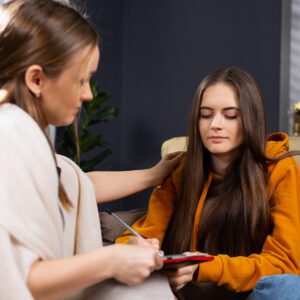When a loved one is struggling with a substance use disorder (SUD), their mood can seem helpless and hopeless, their behavior can appear totally out of control, and their everyday habits can become incredibly problematic and destructive. When family and friends witness this, they often end up enabling or facilitating the SUD in their efforts to help the person overcome their difficulties. Concrete examples of enabling a loved one’s addiction can include:
- Providing the person with money or resources to obtain substances
- Sheltering the person, feeding them, and clothing them
- Paying their bills or debts, both related and unrelated to substance spending
- Giving the person rides or a means of transportation
- Providing childcare for the family member or allowing the person to use substances around children
- Refusing to acknowledge that an SUD is at play
The above is not an exhaustive list. Any action that allows someone to continue abusing substances is considered enabling–including doing “nothing.” To enable is to take actions intended to help the loved one stay alive but that instead make it easy for them to continue using substances without consequence.
What Types of People Enable a Substance Disorder?
Anyone can enable someone else to continue using or drinking. Parents, partners, children, siblings, extended family members, employers–even coworkers can enable. It’s possible to enable as an individual or in a group effort. Most of the time the intention behind the enabling is to slow down or downplay an SUD.
Many enablers act out of a desire to show concern and care. However, it’s also true that enabling actions stem from wanting to control or somehow dictate the severity of the consequences of the SUD.
What Are The Effects of Enabling on The Enabler?
People who have made a pattern of enabling describe suffering from serious anxiety, insomnia, fear, continual stress, or the development of their own addiction or unhealthy coping method. Enabling takes a physical, social, spiritual, emotional, and mental toll. Marriages can end, health can decline, jobs can be lost, and relationships can suffer–all from enabling.
How To Recognize That I’m Enabling or Being Enabled
| I’m enabling | I’m being enabled |
| My principal focus is the person in my life with SUD, and the majority of my energy goes into them. | Someone in my life is consistently supporting me while I abuse drugs or alcohol. |
| I spend most of my money on the SUD directly or indirectly, and I have even restructured my finances or budget to afford it. | Someone in my life is consistently supplying me with funds, resources, or shelter as I continue to use. |
| I feel hopeless, desperate, and helpless when it comes to the SUD. | Someone in my life lets me do or say anything to them and continues to support me. |
| I have put my own ambitions, mental health, or physical and emotional needs on hold to deal with the SUD. | Someone in my life has quit something, moved somewhere, lost an opportunity, or couldn’t afford something they needed or wanted because they support me as I use. |
| I deny that the SUD is at play or simply blame my loved one’s drug abuse on their tolerance of or dependence on the substance. | Someone in my life denies that I have an SUD when I know that I do. |
| My bodily health has begun to decline due to the stress this SUD has caused. | Someone in my life has fallen ill or developed a physical or mental health issue since they’ve been supporting my using. |
Recovery is a Group Effort: Here’s Why
When your loved one is addicted to drugs or alcohol, enabling them can feel like you’re holding the SUD at bay. This makes the dynamic difficult to correct and the SUD that much harder to treat. The focus should instead fall on setting boundaries that encourage the person to seek help. This can often feel like you’re being harsh, cruel, or negligent toward your child, spouse, partner, or friend. In reality, this is the best path, as any continued drug abuse can be lethal and create irreversible harm. Your loved one also has a greater chance of maintaining long-term sobriety if they know that you will never support drug abuse.
Waypoint Recovery Center Family Programs in South Carolina
Sometimes enabling can feel like the only way to show your love. It can be very hard to adopt the tough love stance that will motivate a person to seek treatment and maintain sobriety. That’s why engaging in therapy and family services is so important in combating an enabler/enabled dynamic. Waypoint’s two locations in North Charleston and Cameron, SC, can guide you in supporting your loved one with the following resources:
- Individual family sessions in which residents and their families can examine their relationship patterns with a professional
- Post-treatment family planning where everyone can weigh in on the best boundaries moving forward
- Family and friend support groups that help you navigate post-treatment
Waypoint Recovery Center is here for our clients and their loved ones. Contact us today to close the chapter on enabling forever. Sobriety awaits!





